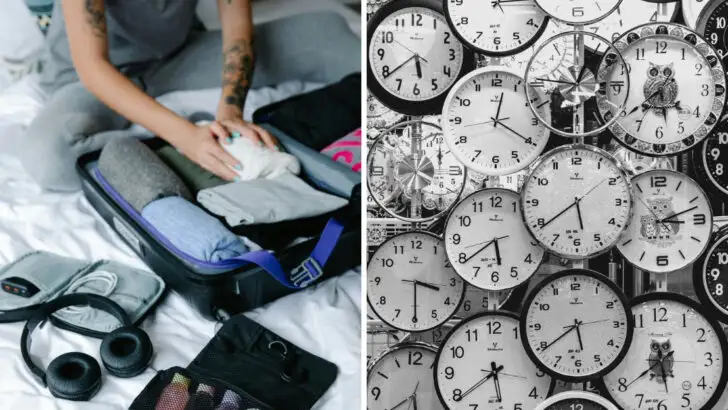Travel can be a joy or a burden, depending on your approach.
The smallest habits often make the biggest difference in whether you return home refreshed or frazzled.
Here are the habits that distinguish those who glide through vacations from those who find them stressful.
Planning vs. Overplanning
In the world of travel, less is often more. Relaxed travelers thrive on a flexible itinerary, embracing the unpredictability of new experiences. They allow room for spontaneity, which often leads to unexpected joy.
Conversely, stressed travelers fill every minute with plans, leaving little wiggle room. This rigidity can lead to frustration when things go awry, as they often do on journeys.
Finding a balance between planning and improvisation is key to a stress-free trip.
The Art of Packing Light
Imagine breezing through the airport with just a carry-on. This is the reality for travelers who master packing light. They embrace minimalism, focusing on essentials and leaving behind the stress of overpacking.
On the other hand, stressed travelers cram their bags with every possible item. The ‘just-in-case’ mentality leads to clutter, both physical and mental.
Traveling light is not just about weight, but about freeing oneself from unnecessary burdens.
Embracing the “Slow Travel” Mindset
Slow and steady wins the race—or in this case, produces more memorable travel experiences. Those who embrace slow travel savor each moment, diving deeper into cultures and surroundings.
Rushed travelers, however, race against the clock, ticking off attractions without truly seeing them. This frantic pace can lead to burnout, robbing the joy from the journey.
Choosing quality over quantity transforms travel into a peaceful exploration.
Flexibility with Time Zones
Time zones can be tricky, but relaxed travelers know how to adapt with grace. They ease into new schedules, listening to their bodies and allowing time for adjustment.
Stressed travelers, on the other hand, resist these changes, leading to exhaustion. Fighting against jet lag instead of working with it can turn a vacation into a struggle.
Flexibility and patience are the secrets to conquering time zones.
Practicing Mindful Travel
For some, traveling is about being present, fully engaging with the environment. Mindful travelers take in sights, sounds, and flavors without distraction.
In contrast, those who are constantly connected to technology may miss these moments. The quest for the perfect photo or post can overshadow genuine experiences.
Mindfulness during travel enriches each moment, creating lasting memories.
Accepting Imperfection
Unexpected hiccups are part of any journey. Relaxed travelers greet these imperfections with acceptance, viewing them as a part of the adventure.
Stressed travelers often find themselves battling with these surprises, seeing them as obstacles rather than opportunities.
Embracing imperfection can turn potential disruptions into unique stories and experiences.
Setting Boundaries with Technology
Disconnecting from technology can be liberating. Relaxed travelers set boundaries, choosing to unplug and engage with their surroundings.
Those who remain tethered to their devices often find themselves distracted, unable to fully immerse in the vacation experience.
Digital detoxing can open up new worlds, enhancing the joy of travel.
Prioritizing Rest and Self-Care
Taking time for rest and self-care is crucial for a rejuvenating vacation. Relaxed travelers incorporate downtime into their itineraries, recharging their minds and bodies.
In contrast, those who push themselves to the limit often return home more exhausted than when they left. Prioritizing self-care ensures a balanced and fulfilling travel experience.

